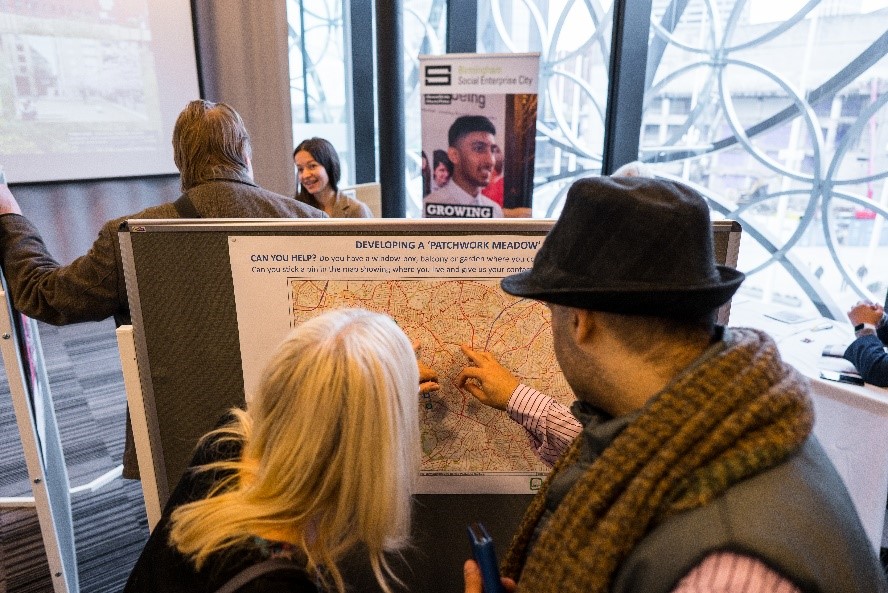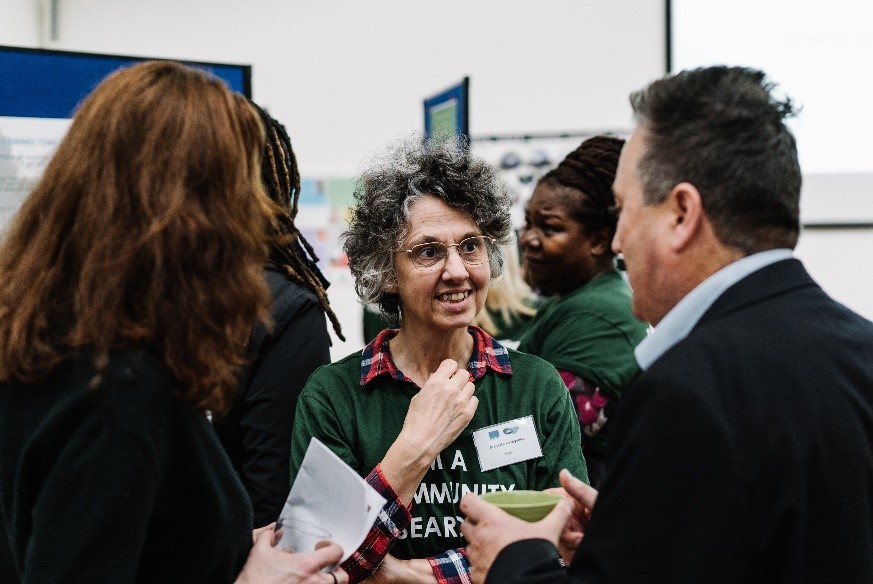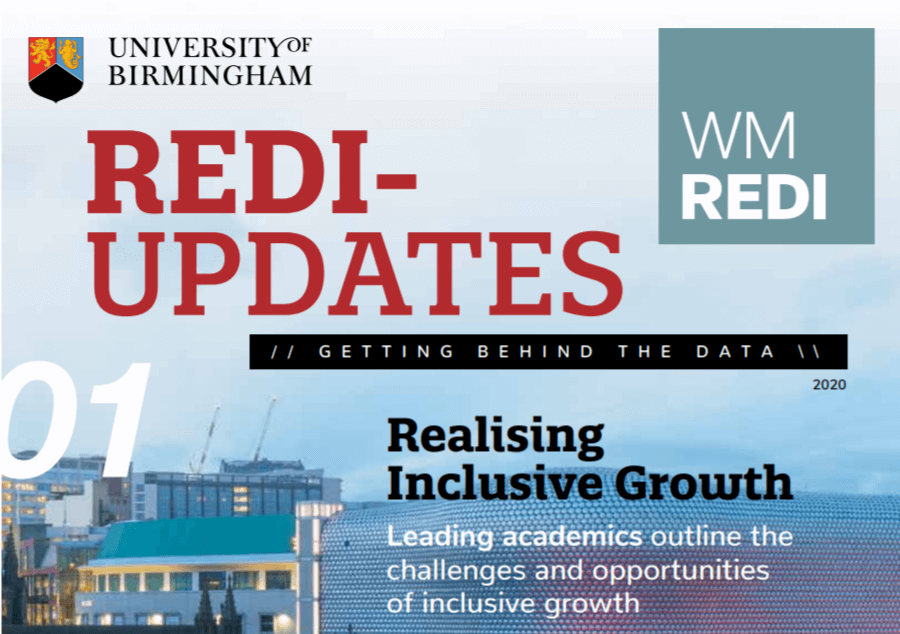Welcome to REDI-Updates. REDI-Updates is a bi-annual publication which will get behind the data and translate it into understandable terms. WM REDI staff and guest contributors will discuss various topics, with this first publication focusing on how inclusive growth can be a tool to tackle regional imbalances across the UK. In this article, Dr Sara Hassan discusses the USE-IT project, which aimed to advance innovative approaches to inclusive growth in an inner-city area of Birmingham.
View and download the magazine.
Unlocking Social and Economic Innovation Together (USE-IT! 2016- 2019) is a three-year Urban Innovative Actions (UIA) funded programme which aimed to advance innovative approaches to inclusive growth in an inner-city area of Birmingham with persistent poverty. European UIA funding supports cities in testing new and unproven solutions that address urban challenges. Traditional urban economic development approaches increasingly magnifies the effects of inequality and has little impact on the poorest areas. However, USE-IT set out to test an alternative approach in the Greater Icknield area. At its heart, USE-UT strived to connect local communities (‘micro assets’) with the resources (‘macro assets’) of the area, including developers and Anchors Institutions.
The programme had four principle strands of activity:
- Strand 1: Matching job skills in the community with local major infrastructure projects (connecting people to jobs in Anchor Institutions, such as the hospital);
- Strand 2: Community Researcher (CR) Training;
- Strand 3: Social and Community Enterprise (establishing/supporting social/ community enterprises to grow and embedding them in local markets);
- Strand 4: Understanding and strengthening community assets and finance.

The USE-IT partnership includes 15 local partners who, including NHS, University of Birmingham (UoB) and Birmingham City Council (BCC), attempt to disrupt and make real change on the ground. The partnership was particularly keen on co-producing the learning and knowledge about the efficiency of the tested approaches and redefining ‘what works’ for realistic inclusive regeneration and growth in the area.
The University of Birmingham leads the community researcher training strand with a focus on its role as a civic university and as an anchor institution with its neighbouring communities. The ethos of this strand was meaningful co-produced research which can be used not only to empower local communities but also to influence inclusive growth, challenge the assumptions of traditional urban regeneration and involving communities in the production of knowledge. Co-produced research was delivered through Open College Network (OCN) accredited training designed by the Institute of Research into Superdiversity (IRIS). USE-IT surpassed its initial target in training to reach 80 CRs from a wide range of ages, ethnic and socio-economic backgrounds as well as diverse interests and ideas. The research undertaken by CRs was not predetermined but sought to embrace the very diverse voices of participants. Community research training was initially used as a community engagement method but gradually changed towards commissioned research which gave many of the CRs a practical and realistic understanding of the power of research and how to use research to affect change in the decision-making process.

The fruitful partnership between university academics and CRs has been very beneficial and important for both. The training courses were delivered at venues in the local community, which were locations where the community feel comfortable and are easily accessible. Some workshops were also delivered at UoB. This enhanced trust between staff from the University, and the community which is a vital step in the development of this strand. CRs and academics engaged with research in very different ways. Where academics were sometimes constrained in their thinking due to academic protocol, and being aware of potential criticism, CRs were not restricted by these norms and enriched the research with their expertise and ease of access to data that is not easily accessible to academics. On the other hand, academics ensured research design rigour and quality assurance. Academics also had connections with key local stakeholders at a strategic level. Regular mentoring and support of CRs played a key role in maintaining this relationship.
The CRs worked with a range of partners from across the West Midlands which has provided valuable experience of working with partner organisations to design, conduct, and disseminate research findings and has allowed them to shape the research being conducted within and about their communities. The commissioned model illustrated the value of community research to the partner organisations and that the CRs are viable partners for their research, being highly skilled and informed with local knowledge and expertise, which many organisations seek to find. CRs’ knowledge, research work and time were also valued and paid for. Through more than 24 commissioned research projects, there was a broad range covering themes such as public health, environment, food insecurity, unemployment and skills of the refugees and migrant communities.
For example, one commissioned project aimed to assist refugees and asylum seekers to understand and enter the labour market, where a training package was developed. Another, the Connecting Canals and Local Communities project saw the researchers engaged members of the public, with 182 surveys completed. Another example is the skills recognition project, which aims to support refugees and asylum seekers to understand and access the UK labour market. CRs were also given the opportunity to present their work to a diverse audience on a number of events giving oral and poster presentations to the public. The research projects not only reflected the needs of the communities in the Greater Icknield area but they also bridge the gap between communities and intervention programmes such as USE-IT in the area.
This blog was written by Dr Sara Hassan, Research Fellow, City-REDI / WM REDI, University of Birmingham.
To sign up for our blog mailing list, please click here.
Disclaimer:
The views expressed in this analysis post are those of the authors and not necessarily those of City-REDI / WM REDI, University of Birmingham.

